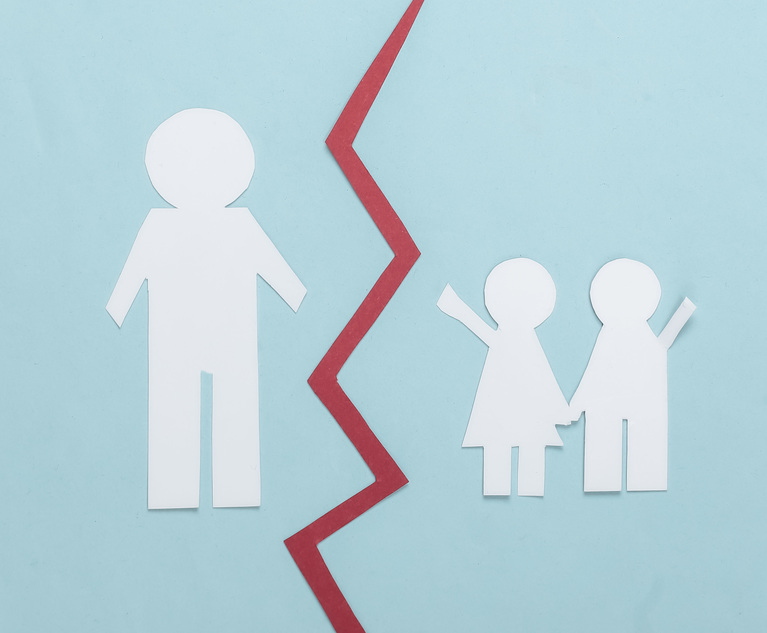Parental Alienation Syndrome (PAS) is a distressing phenomenon that occurs when one parent manipulates and influences a child to reject the other parent without reasonable justification. This form of emotional abuse can have severe and long-lasting effects on the child’s psychological well-being and future relationships. In this article, we will delve into the various aspects of parental alienation syndrome, including its definition, signs, impacts on adult children, and co-parenting tips.
What is Parental Alienation Syndrome?
Parental Alienation Syndrome, as coined by American psychiatrist Richard Gardner, refers to the detrimental impact of one parent’s behaviors on the child’s relationship with the other parent. It involves tactics such as denying access, criticizing, encouraging disrespect, and even forcing the child to sever ties with the targeted parent. These behaviors are often carried out without reasonable justification.
It is important to distinguish parental alienation from legitimate reasons for a child’s rejection of a parent. Justifiable grounds for rejection include histories of domestic violence, child abuse, neglect, mental disorders, or substance abuse. In such cases, the child’s estrangement is not classified as parental alienation syndrome but rather an understandable response to adverse circumstances.

Signs of Parental Alienation
Recognizing the signs of parental alienation is crucial for early intervention and support. While the terminology surrounding parental alienation can be confusing, certain behavioral patterns can indicate the presence of this syndrome.
Alienating Parent’s Behavior
-
General badmouthing: The alienating parent consistently speaks negatively about the targeted parent, making them appear dangerous or sick.
-
Sharing legal issues: The alienating parent involves the child in custody battles or discussions about child support, burdening them with adult concerns.
-
Accusations of lack of love: The targeted parent is falsely accused of not loving the child, creating doubt and mistrust in the child’s mind.
-
Defaming the targeted parent: The alienating parent defames the targeted parent in front of authorities, attempting to tarnish their reputation.
-
Restricting visitation: The alienating parent may limit the child’s access to the targeted parent or withhold contact information, impeding the parent-child relationship.
-
Negative remarks about extended family: The alienating parent makes disparaging remarks about the targeted parent’s extended family, creating a sense of animosity.
-
Intercepting communication: The alienating parent may intercept calls and messages from the targeted parent, preventing open and honest communication.
-
Hiding the child or relocating: In severe cases, the alienating parent may hide the child’s whereabouts or move away, further isolating the targeted parent.
The Child’s Behavior
Richard Gardner identified several symptoms commonly observed in children affected by parental alienation syndrome:
-
Campaign of denigration: The child engages in relentless name-calling, criticism, and derogatory comments about the targeted parent.
-
Rationalizations: When questioned about their rejection of the targeted parent, the child provides weak or absurd justifications.
-
Independent thinker belief: The child insists that their negative feelings towards the targeted parent are entirely their own and not influenced by the alienating parent.
-
Lack of ambivalence: The child views the alienating parent as all-good and the targeted parent as all-bad, disregarding any positive qualities of the targeted parent.
-
Absence of guilt: The child shows no remorse or guilt for their cruel actions or words towards the targeted parent.
-
Use of borrowed scenarios: The child uses fabricated memories or opinions from the alienating parent as their own justification for rejecting the targeted parent.
-
Spreading animosity: In severe cases, the child actively spreads animosity towards the targeted parent’s extended family, further isolating them.

Impacts on Adult Children of Parental Alienation
The effects of parental alienation can be devastating for children, with long-lasting consequences that persist into adulthood. It is essential to understand the potential impacts to provide appropriate support and intervention.
Lower self-esteem
Adult children who were subjected to parental alienation often struggle with low self-esteem and self-hatred. Being repeatedly told by the alienating parent that their targeted parent hates them can have a profound impact on their self-worth.
Major depressive disorder
Depression is prevalent among adult children of parental alienation. The feelings of being unloved by the alienated parent and the early separation from them can contribute to depressive episodes.
Lower self-sufficiency
When alienating parents deny children the freedom to make independent decisions, it undermines their self-sufficiency. These children grow up lacking the autonomy to develop a sense of self-reliance.
Insecure attachment style
Alienating parents often prioritize their own needs over the child’s, fostering dependency and manipulating the child to maintain control. This can lead to the development of insecure attachment styles in children.
Drug/alcohol abuse
Adult children who experienced pain or loss due to parental alienation may turn to substance abuse as a coping mechanism to escape their emotional distress.
Lack of trust
A lack of trust in themselves and others is a common theme among adult children of parental alienation. They may struggle to believe that others will love and commit to them if even their own parents did not.
Alienation from own children
Tragically, patterns of family breakdown, poor parent-child relationships, and alienation from their own children can repeat in the lives of adult children who experienced parental alienation.
Divorce
Adult children of parental alienation often have higher divorce rates compared to the national average. They may unknowingly choose partners who exhibit similar controlling and manipulative behaviors, leading to relationship breakdowns.

Co-Parenting Tips
Co-parenting in the context of parental alienation can be challenging, but it is essential to prioritize the child’s well-being. Here are some tips for navigating co-parenting in such situations:
-
Seek professional help: Engage the assistance of therapists or mediators who specialize in parental alienation to facilitate healthy communication and conflict resolution.
-
Focus on the child: Keep the child’s best interests at the forefront of all decisions and actions, ensuring they have access to both parents and maintaining a sense of stability.
-
Maintain boundaries: Establish clear boundaries with the alienating parent to minimize their influence over the child and prevent further manipulation.
-
Encourage open communication: Foster an environment where the child feels safe expressing their feelings and concerns about the alienation they may be experiencing.
-
Document instances of alienation: Keep a record of instances of alienating behavior, as it may be necessary to present evidence in court if legal intervention becomes necessary.
-
Educate yourself: Learn about parental alienation syndrome and its impact to better understand and support your child through this challenging experience.
-
Promote reunification: If appropriate, work towards reunification therapy to help rebuild the parent-child relationship in a controlled and supportive environment.
Parental alienation syndrome is a complex and distressing issue that requires attention and intervention. By recognizing the signs, understanding the impacts, and implementing effective co-parenting strategies, we can support children affected by parental alienation and mitigate the long-term effects on their well-being.
